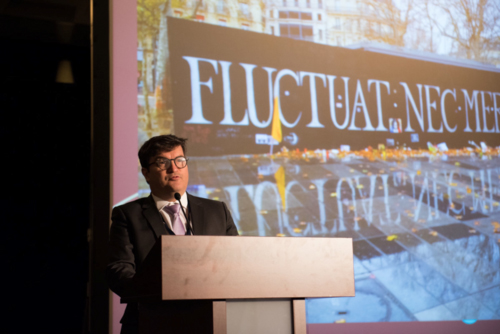

The Future of Cash 2017 By: Guillaume Lepecq It seems that barely a week goes by without a news source claiming that a new payment method will be 'the end of cash'. With new methods of payment emerging at a rate never seen before, each claiming to be faster, more convenient and more secure than cash, is it just a matter of time before cash is no more?
But the figures would suggest otherwise. According to the UK Cash & Cash Machines 2016 report released by Link, cash is still the most commonly used payment method in the UK, with over 17bn payments made in cash in 2015. Across Europe and the US, cash payment remains dominant – 82% of transactions are still made in cash in Germany, while in the US 45% of transactions are made in cash. With figures like these, cash will be with us for some time yet – and means that finding ways to improve the efficiencies of cash use become increasingly vital. The next Future of Cash conference took place 4-5 October 2017 in Vienna, Austria and focused on the optimisation of the cash cycle. It brought together all stakeholders involved in the cash cycle to discuss new strategies for creating the cash cycle of the future. This was the 13th edition of the event, which was one of the first of its kind in the industry to focus on securing the future of cash through innovative thinking and operational efficiencies. It typically attracts delegates from central banks, financial institutions, retailers, cash management companies, technology providers and other suppliers. It was founded and is directed by cash expert Guillaume Lepecq of AGIS Consulting, who comments 'it has been my pleasure to lead some fascinating debates at The Future of Cash. As you can imagine, I have heard every argument for why cash still matters – as well as every argument for why cash is no longer relevant. 'However, in my opinion, these debates completely miss the point. As we highlighted at our last event in Paris, consumers want to use cash – and will continue to do so, not only to make payments, but also for their savings, to better manage their budgets, to protect their privacy and also as a back-up, when other systems fail. 'So the real issue is not whether cash has a future, but what retailers and banks should be doing to continue to offer choices to consumers in a more efficient way.' As an example, retail banks may not profit directly from cash, but it is undoubtedly their key touchpoint with customers. So the challenge, and opportunity, for them is to provide a cash service that continues to serve as an interface with customers, but in a way that is convenient and efficient for bank and customer alike. Failure to do so could lead to loss of business and negative press, as in the case of German Fintech Number 26, which provoked uproar on social media when it announced that hundreds of accounts would be closed because customers were using ATMs too often. Alternatively, regulators could well impose a minimum level of cash services, as in the case of Norway. Retailers, meanwhile, build their businesses on providing the right product at the right price and in the right place, and flexibility and choice of payments are an essential component of customer service. This, however, comes at cost, but – says Guillaume – retailers can drive up efficiencies and drive down costs through an effective cash handling strategy and the deployment of appropriate technology solutions. These and other topics relating to strategic and operational initiatives across the whole distribution chain provided the focus for The Future of Cash, the two-day programme that included sessions on changing demand, improvements in cash collection, making cash more efficient, and how technical and process innovation can transform the way cash is handled. More information about the event can be found at www.thefutureofcash.com, or join the Future of Cash group on Linkedin. Guillaume Lepecq is an approved consultant with ATMIA. You can learn more about him at https://www.atmia.com/consultants/guillaume-lepecq/1046/. |
© 2016 ATM Industry Association. All Rights Reserved.
